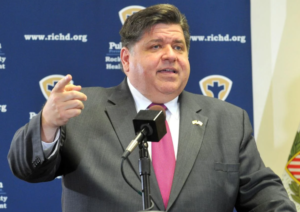Iowa state officials awarded a third round of $4 million in grants through the Career Academy Incentive Funds to promote regional preparation of high school students for high-demand fields.
Des Moines Area Community College (DMACC), Iowa Lakes Community College, Iowa Western Community College and North Iowa Area Community College (NIACC) each received $1 million for a new regional center, the news release said.
School districts partnering with these centers will promote students’ ability to benefit from industry partnerships, earn high school and college credit, and gain skills through career and technical education (CTE) programs in fields including advanced manufacturing, agribusiness, building trades, electrical trades, health care, information technology and welding.
“The new regional centers will help more students leave high school prepared for the workforce or ready for further postsecondary education, and I am thankful to these community college and school district leaders for their dedication to expanding career academy opportunities,” Iowa Department of Education Director Ann Lebo said in the release.
In 2019, Gov. Kim Reynolds extended a one-cent sales tax through 2050 to pay for the Secure an Advanced Vision for Education fund, which pays for the grants.
DMACC (Templeton, west central Iowa), Iowa Lakes (Spirit Lake), and Iowa Western (Missouri Valley) will establish new centers that will each serve four districts in their respective regions. NIACC’s new center in Charles City will serve students from seven school districts in north central Iowa.
John V. Hanson Career Center Director Jim Haag told The Center Square in an emailed statement that the new regional center in Charles City will be similar to the center he directs in Forest City, which they moved into at the end of October due to delays related to supply chain. Local businesses that partnered with the center had hosted the students in their facilities while the building was being completed.
“Our goal is to address the shortage of employees in high demand fields by creating a pipeline and network to develop high quality career and technical education,” Haag said. “This includes, but is not limited to, a strong and rigorous curriculum, extensive hands on learning opportunities, connections to business and industry, varied work based learning opportunities and access to quality apprenticeship programming.”
They decided to provide education in advanced manufacturing, construction trades, health career and information technology based on regional shortages of employees to fill high-paying jobs.
“We are optimistic about our ability to make a difference in the region,” he said. “Our school partners, local business and industry, as well as the communities are embracing our programs and are extremely positive about our programming and the possibilities.”
Funding for both facilities comes from the Iowa Department of Education, local contributors, private donors and NIACC.
“The opportunity to receive the Iowa Department of Education career academy incentive funding will help kickstart the project in Charles City to serve students, schools, business, industry and communities in that sector of the NIACC region,” he said.
Job Search Intelligence President and Educate to Career Co-Founder Paul Hill told the Center Square in a phone interview Monday that the idea behind the grants makes sense in principle since the focus is on addressing needs in the workforce. Educate to Career, a nonprofit, collects data to help career counselors, employers, students and parents make career planning and recruitment decisions.
“We are absolutely advocating for taxpayer-subsidized training of people for jobs that actually exist,” he said.
For example, entry-level salary for a sheet metal worker in the Waterloo-Cedar Falls area is $45,000, with a “hot” probability of getting hired with the right credentials, according to Educate to Career’s analysis. The minimum requirement is certification or other industry-recognized credential. Nationally, employment in the field is expected to grow 8% in the next 10 years, they report.
This article was originally posted on Iowa awards community colleges $4M to prepare students to fill jobs





Be First to Comment